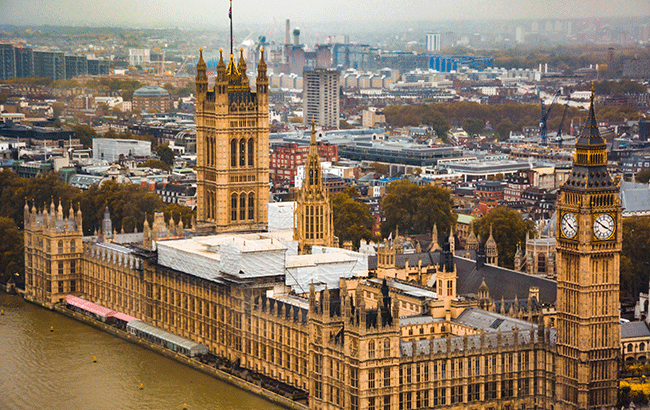Spirits and hospitality ‘ignored’ in UK budget
By Lauren BowesChancellor Rachel Reeves’ spring statement today (26 March) made no mention of the spirits sector or the on-trade, leading to disappointment from industry figures, who had hoped for a reversal of policies announced in the autumn budget.

Reeves emphasised in her speech that: “As I promised in the autumn, this statement does not contain any further tax increases.”
However, in her first budget as chancellor, delivered in October 2024, she increased employer National Insurance contributions (NICs) by 1.2 percentage points from this April.
Kate Nicholls, chief executive of trade body UKHospitality, said: “Growth won’t just happen without a plan. Today’s statement was yet another missed opportunity to avoid an April cliff edge that will level a devastating £3.4 billion (US$4.39bn) annual increase to the sector’s tax bill.
“The government’s own analysis shows the failure to address the employer NICs threshold will force businesses to freeze recruitment, reduce hours available for staff and reduce employment levels in the very sectors the government needs to achieve its goal to get people off welfare.
“If the government is serious about getting Britain working, it needs hospitality. When we were backed after the financial crash and the pandemic, we proved how we can help drive economic recovery.
“Our new research this week proves that hospitality and the foundation economy are essential to the government’s plan to create jobs where they’re needed, not just in clusters in the south-east.
“There is still time for the chancellor to act and avert this disaster. Now is the time to back hospitality, delay the changes to employer NICs and work with us to bring forward a plan for the high street that can deliver socially productive growth and opportunities to get people back into work.”
The autumn budget also included an increase in the minimum wage and in spirits duty. Michael Kill, CEO of the Night-Time Industries Association (NTIA), had previously calculated that these policies could cost the on-trade up to £150,000 (US$193,484) a year.
‘Blatant disregard’
Following today’s announcement, Kill said he was “outraged” by the statement, which he described as “a reckless dereliction of duty that blatantly disregards the night-time economy’s desperate need for support”.
He continued: “Once again, the government has ignored the mounting evidence of economic devastation in our sector, doubling down on disastrous fiscal policies instead of taking decisive action to foster genuine growth and stability.
“With crushing tax hikes set to take effect in April, the night-time economy now faces a worsening crisis that threatens widespread closures, mass job losses, and economic stagnation. The chancellor’s failure to introduce meaningful financial relief is not just negligent – it is a direct attack on the viability of an industry that contributes billions to the UK economy.”
He described the night-time economy as “at breaking point”, adding: “The absence of targeted support is nothing short of a betrayal, leaving businesses to fend for themselves in an increasingly hostile environment.”
He concluded: “This statement could have marked a turning point – a moment for the government to acknowledge its failures and finally take action to protect industries that are vital to economic recovery. Instead, it is another damning indictment of the government’s lack of vision, leadership, and competence. The refusal to enact real change or provide the necessary safeguards for our sector is an unforgivable abdication of responsibility.
“The NTIA demands immediate and substantial intervention. We will not stand by while our industry is systematically dismantled by political negligence. The time for excuses and empty promises is over. The government must act now – before it is too late.”
Scotland’s angle
While many of the policies announced by the chancellor apply to all of the UK nations, devolution means the reality can vary in Scotland, Wales and Northern Ireland.
Colin Wilkinson, SLTA managing director, pointed in particular to the Scottish business rates system: “The commercial rating system is obviously devolved to each home nation and Scottish businesses desperately need a wholesale review of business rates. An urgent and complete review of the system in England, promised by the Westminster government, needs to be accelerated and would hopefully give momentum for the Scottish government to do likewise.
“The chancellor has already stated her intention to introduce two permanently lower tax rates for retail, hospitality and leisure south of the border.
“Meanwhile, the SLTA continues to call for the introduction of a permanent non-domestic rates licensed hospitality-specific multiplier in Scotland of 35p to support our pubs and bars, encourage investment, help revitalise high streets, and rebalance the disproportionate business rates burden.
“We also urge the UK government to look at the bigger picture by permanently reducing the VAT rate for licensed hospitality businesses to create a more level playing field with our European competitors and for an industry that makes a massive contribution to the economy – at UK, Scottish, and local levels.”
Related news
UK govt removes ‘insulting’ language from tips legislation
